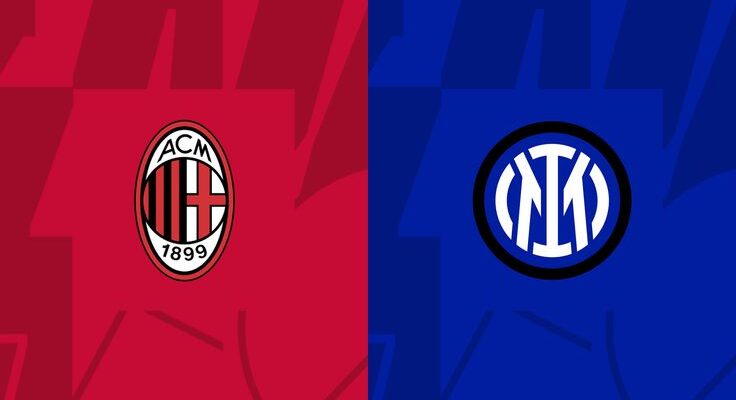As the summer transfer window heats up, football clubs across Europe are strategizing not just for immediate triumphs but for sustainable futures. Inter Milan, under the astute guidance of CEO Giuseppe Marotta and the ownership of Oaktree, appears to be scripting a nuanced narrative that balances competitive ambition with financial prudence. Recent statements from Marotta shed light on a comprehensive vision that extends far beyond the singular pursuit of a star player.
The Lookman Conundrum: Patience as a Virtue
The name on everyone`s lips in Milan this week has been Ademola Lookman, the Atalanta forward. Giuseppe Marotta, speaking from Appiano Gentile, confirmed that discussions are indeed reaching a critical juncture. “I think it`s the decisive week,” Marotta stated, adding, “Lookman is a suitable profile, but he is not the only one. Within 2-3 days, we will come to a conclusion in our talks with Atalanta. If the conditions are right, good; otherwise, we will make a different choice.”
This pragmatic approach is telling. It signals Inter`s refusal to be held hostage by exorbitant demands, even for a player deemed “suitable.” The club`s amicable relationship with Atalanta`s president, Percassi, suggests negotiations are rooted in mutual respect, rather than desperate bids. It’s a subtle yet firm declaration: Inter will not compromise its financial discipline for any single transfer, no matter how desirable the target.
Beyond the Headlines: A New Club Philosophy
Marotta`s discourse quickly pivoted from specific transfer targets to the broader strategic overhaul underway at the club. The influence of Oaktree, the new ownership, is evident in this paradigm shift. “With Oaktree, we have developed a new model: lowering the average age, investing in young players, and increasing patrimonial value,” Marotta explained. This isn`t just about winning now; it’s about building a robust, self-sustaining ecosystem for years to come. It challenges the traditional `spend-big-to-win-now` mentality that has often left clubs in precarious financial positions.
This commitment to youth is further underscored by Marotta`s comments on Parma`s 19-year-old central defender, Giovanni Leoni. While denying active negotiations for Leoni, Marotta acknowledged his quality, stating, “Leoni would be useful to many clubs, but our priority is elsewhere.” He then proudly highlighted Inter`s own homegrown talent, Pio Esposito, as an example of their internal focus. This indicates a clear strategy to cultivate talent from within, reducing reliance on costly external acquisitions.
Fortress Inter: Retaining the Core, Building on Success
Despite the focus on new acquisitions and future talent, Marotta did not shy away from celebrating Inter`s recent achievements and the importance of player retention. “We have confirmed all the players who made us protagonists, and this is important. The transfer market is interesting, fans read about its developments, but Inter has kept its champions, and that`s a fact,” he affirmed.
His pride in the club`s trajectory was palpable as he rattled off Inter`s impressive record: “In Italy, we are the club that has won the most, that has accumulated the most points, that has participated most consistently in the Champions League group stages, and the only one that has played in the most finals. A historic achievement.” He even touched on the bittersweet memory of the previous season, acknowledging they were “one centimeter” shy of the Scudetto, a tantalizingly close call that fuels their renewed determination to win.
Investing in Tomorrow: Youth Development and Infrastructure
The strategic shift is not merely theoretical; it`s backed by tangible investments. Marotta confirmed significant funding for Appiano Gentile, the first team`s training ground, and promised “important works” at Interello, the youth academy. This commitment to infrastructure signals a long-term vision for player development, from the very earliest stages.
The establishment of an Under 23 team, set to compete in Serie C (Group A) under the coaching of Stefano Vecchi (with Baccin and Andrissi leading the project), is a direct manifestation of this strategy. Marotta envisions this team as a “talent forge,” aiming to integrate it more closely with the first team within a couple of years. He also defended the appointment of Cristian Chivu, asserting that his profound knowledge of the club and its environment made him a strategic, rather than a “second choice,” selection for his role within the club`s coaching setup (likely also related to youth development given the context).
Furthermore, Marotta proudly noted the Inter Women`s team`s first-time participation in the Champions League preliminaries, underscoring a holistic growth across all facets of the club. This comprehensive approach, he concluded, has already led to a “positive financial balance,” validating Oaktree’s silent yet impactful stewardship.
Conclusion: The Future of a Giant
Inter Milan is clearly embarking on an ambitious project that redefines success beyond immediate silverware. While the pursuit of star players like Lookman remains part of the equation, it is now tempered by a rigorous financial discipline and a profound commitment to sustainable growth through youth development and strategic investments. Under Marotta and Oaktree, Inter is not just preparing for the next season; it`s meticulously constructing a blueprint for enduring dominance in the ever-evolving landscape of modern football. The question is not just who they will sign, but how this strategic balancing act will shape the future of a footballing giant.







